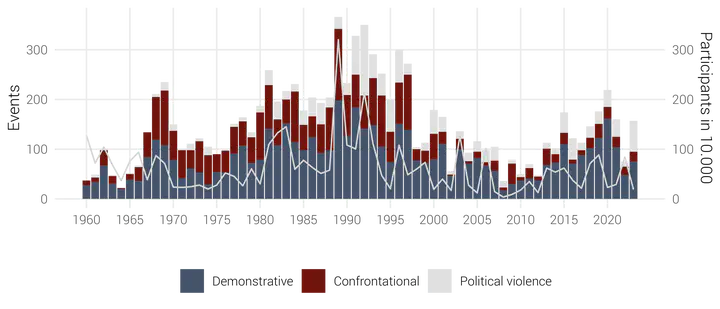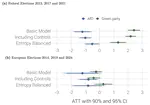Political Protest and Radicalization
(WZB ProtestMonitoring)
 Source: created by author
Source: created by author
Since the 1990s, the protest scene in Germany has been shaped by issues such as migration, the environment and welfare. These issues have often led to violent mobilisations and counter-mobilisations on the streets. The aim of the WZB ProtestMonitoring is to monitor the German protest landscape in a systematic way. On an ongoing basis, we analyse the temporal and spatial contexts of protest events, the discursive opportunity structures of protest, as well as the radicalisation processes of individual protest actors.
Methodologically, our project is based on a comprehensive data collection, which comprises three closely related collection instruments: First, we systematically analyse protest events since the 1950s (including form of protest, place, time, number of participants and issues). This is retrospectively linked to the Prodat dataset. Second, we examine public debates in the context of protest events and political violence, as well as long-term dynamics of radicalisation in the public sphere. Third, we analyse the profiles of radical protest actors and their socio-structural characteristics. Empirically, the project combines automated and manual methods of quantitative content analysis based on media coverage in national and regional newspapers as well as biographical and social network data.
The project is part of the top research cluster Monitoring System and Transfer Platform Radicalization (MOTRA), a project funded by the German Federal Ministry of Education and Research and the Federal Ministry of the Interior in the context of civil security research. At the WZB, the Centre for Civil Society Research and the Department of Migration, Integration, Transnationalisation are involved.


